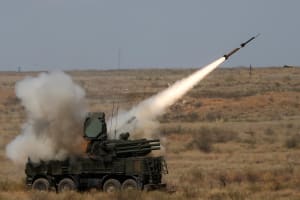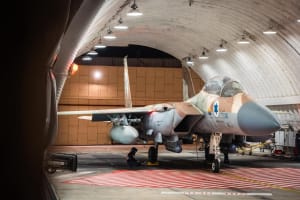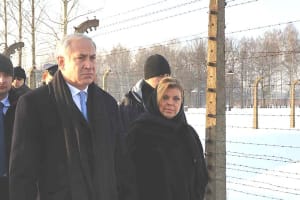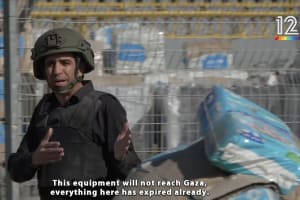Russian weapons bolster Iranian air defenses as Israel weighs counter-strike
Iranian-Russian partnership upgraded Iran’s defense over past years

As Israel weighs its response to the failed Iranian drone and missile attack on Sunday, any strike on Iranian territory will have to contend with the Iranian air defenses that have been substantially upgraded through Russian assistance in recent years.
Since Russia's invasion of Ukraine in 2022, the two states have especially grown closer through their military cooperation, to the degree that experts recently described it as a “deepening strategic partnership,” the Washington Post reported.
Cut off from Western weapon supplies through sanctions, Russia turned to Iran to replenish its dwindling weapons stocks. Tehran agreed to supply Russia with thousands of military drones and missiles in 2022, kickstarting the growing cooperation that has led Russia to pledge the sale of advanced jets and air defense technology.
While it is unknown how many of these systems have been delivered until now, this should concern Israel and the United States, as it could greatly hamper any future strikes in Iranian territory, several experts told the Post.
In 2007, Iran agreed to a deal to buy the highly rated Russian S-300 long-range surface-to-air missile system, called SA-10 Grumble by NATO countries. In 2019, after a delay in the transfer due to pressure from the West, the system became operational.
Since then, the Iranian regime has requested to buy the next generation of the system, called S-400, some variants of which have radar sophisticated enough to reveal modern stealth fighters, and possibly even the American F-35 jets that Israel operates.
It is not clear whether Iran has actually acquired the S-400. According to a Russian document leaked in February by a hacker group, an Iranian delegation visited a Russian arms producer of advanced air defense systems.
In the document, the tour was described as a showcase of the “scientific and technical potential and production capabilities” that Russia could offer to Iran.
The factory NPP Start, based in the Russian city of Yekaterinburg, produces mobile missile launchers and components for antiaircraft batteries including the S-400.
Relations between Israel and Russia have begun to suffer notably since Tehran and Moscow have grown closer.
In February, the Russian Foreign Ministry formally reprimanded Israeli Ambassador to Russia Simona Halperin for what Moscow considered “unacceptable comments” about Russia's foreign policies.
Halperin had criticized the Russian government’s close ties to the Iranian regime and its terror proxy Hamas.
In recent months, several media outlets reported that Russia has been increasing its military presence on the Syrian Golan Heights, close to the Israeli border.
Notably, Russia has already deployed the S-400 to its bases in Syria, posing a dangerous threat to U.S. and Israeli aircraft across the region.

The All Israel News Staff is a team of journalists in Israel.
You might also like to read this:
















